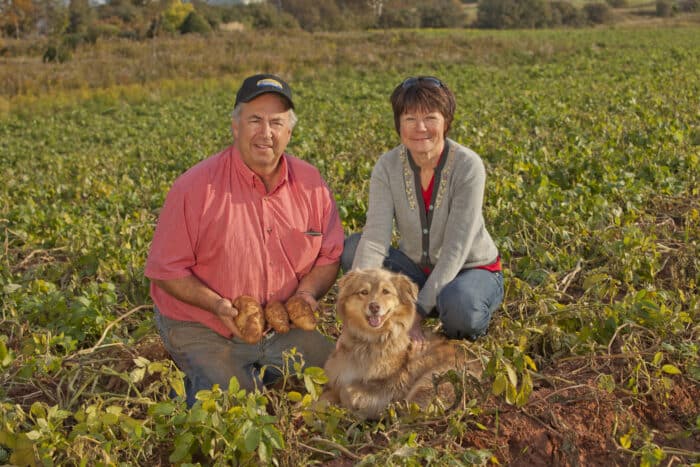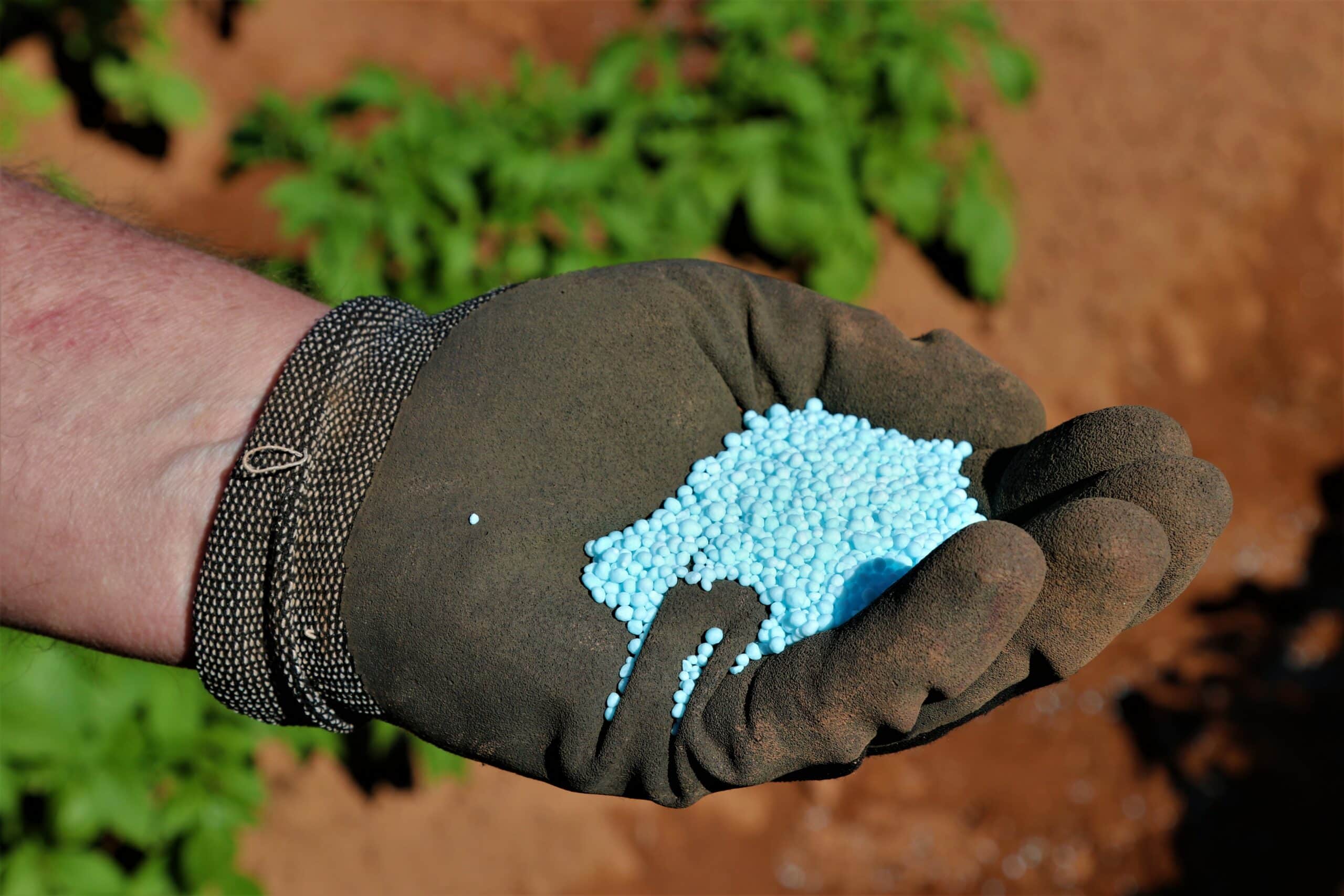A recent study set out to look at how well new fertilizer technology works for P.E.I. potato growers.
Steve Watts is always looking for new opportunities for the potato growers he works with on Prince Edward Island. About 10 years ago he received a contract from Fertilizer Canada to work with growers on new fertilizer technologies using the 4R nutrient stewardship system. Through this work he found himself learning about enhanced efficiency fertilizers.
“The cost of using this new technology can be more expensive than using the traditional products like urea. As a researcher that provides agronomic services to my potato farmers, the question was, ‘You want us to invest more money in this particular product or technology, but are we going to get better yields? Can we reduce our nitrogen rates and get similar yields? What is the value proposition?” Watts explains in a phone interview.
If the growers he worked with through his business Genesis Crop Systems were to start using SUPERU, they’d need to know the exact cost of it compared to their current fertilizer systems. While the upfront cost was more than other fertilizers, Watts wondered if overall it would be better economically and agronomically for growers.
To investigate this, Watts led a precision agriculture research project where the use of an enhanced efficiency dual inhibitor fertilizer product, called SUPERU, was studied in potato crops. SUPERU protects nitrogen from environmental losses by giving it to plants as they need it over a period of time thus reducing nitrogen loss from plants to soil.

The research was done with support from P.E.I. farmers, Agriculture and Agri-Food Canada (AAFC), researchers from Dalhousie University and the P.E.I. Department of Agriculture and Land. It was done as part of AAFC Living Lab — Atlantic.
Between 2019 to 2021, Watts tested SUPERU by comparing growers’ standard fertilizers to various mixes of standard fertilizers and SUPERU. They used three different fertilizer treatments in fields, including a grower standard practice, a grower standard practice with SUPERU incorporated in as the nitrogen fertilizer and urea taken out, and then a lower application of SUPERU with around 15 to 17 per cent less nitrogen applied. They did tests on six sites per year for three years.
Soil sampling and field tests such as measures of potato yields, greenhouse gas emissions and soil nitrate levels were conducted by Watts and Kyra Stiles’ team at the P.E.I. Department of Agriculture and Land. Further greenhouse gas emissions testing was done by David Burton’s team at Dalhousie University, while AAFC scientists at the Charlottetown Research and Development Centre helped with yield data analysis.
It was found that by using enhanced efficiency fertilizers such as SUPERU, growers could maintain their current potato yields and profitability with the same input costs, while reducing greenhouse gas emissions by 30 per cent or more. By using SUPERU it also lessened nitrate leaching into ground water and reduced nitrous oxide emissions, with lower soil nitrate levels post-harvest recorded.
One of the growers who tested the fertilizers was Vernon Campbell. Campbell has a processing potato farm called Mull Na Beinne Ltd. near Kensington, P.E.I. Watts is Campbell’s agronomist which is how he heard about SUPERU. Watts said that instead of putting all his nitrogen application down with the planter, Campbell could broadcast the SUPERU before planting and then incorporate it into the soil during planting, with it releasing when needed during the growing season.
“We actually believe and have tried reducing the number of pounds of N we’re applying because it’s far more efficient than applying all your N at planting. So even though the SUPERU costs more to buy, we were able to use less and get the same results. In fact, the same yield results along with positive environmental results,” Campbell says in a phone interview.

On Campbell’s farm they did full scale field trials with the fertilizers on numerous fields over several years.
Watts has applied for funding for the next cycle of Living Labs to look at if newer biological nitrogen fixing products for non-legumes can be incorporated into P.E.I. potato nitrogen programs.
“It fascinates me all to pieces, and I actually did a little bit of preliminary work last year,” he explains. “I thought (the results) looked promising and I shared them with some other collaborators that I engaged with. We all thought it would be proper to put a proposal together where we started looking at some of this new emerging technology.”
Header photo — SUPERU protects nitrogen from environmental losses by giving it to plants as they need it over a period of time thus reducing nitrogen loss from plants to soil. Photo: AAFC
Related Articles
New Study Finds How Potassium Fertilizers Impact Potatoes
Federal Government Forming Fertilizer Working Group
Lowering Potato Greenhouse Gas Emissions with Proper Fertilizer Use









